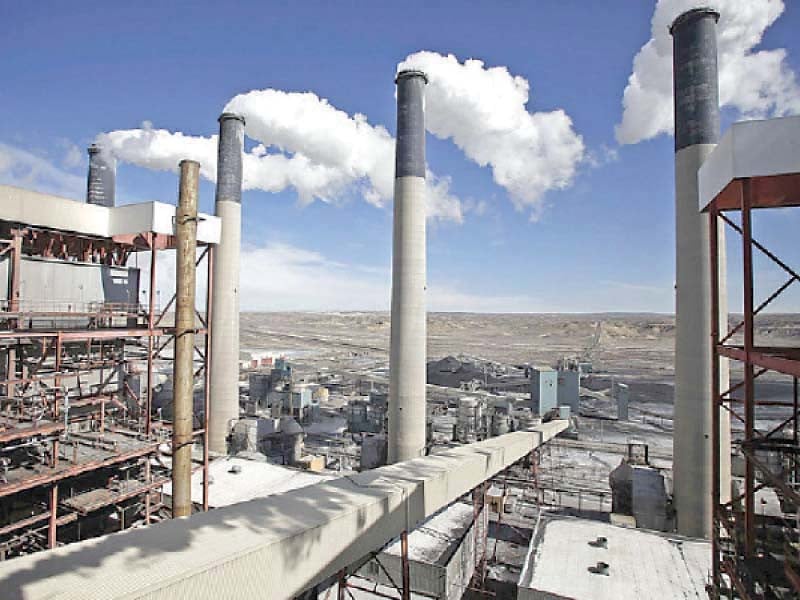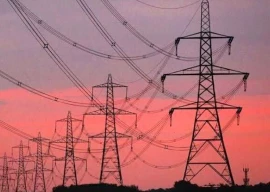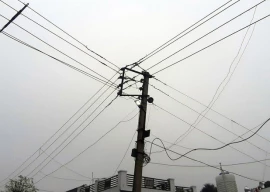
The issue of electricity bills is spiralling out of control and if not addressed properly, the situation can spark major social unrest.
Adding insult to injury, political parties such as the PML-N and PPP, once part of the PDM and responsible for creating the mess in the energy sector in the last three decades, came out to support protests by people against the rising cost of energy.
Two years ago, in my article “From being energy deficient to energy inefficient, I focused on issues of inefficiencies in the power generation and distribution system. However, to address the issue of rising circular debt in totality, which has reached a staggering Rs2.5 trillion, we cannot ignore the elephant in the room, which is the contracts struck not only with international but local independent power producers (IPPs) at unfavourable terms (for consumers).
Read JI to approach SC against IPPs agreements
It all started with the power policy in 1994 by the PPP government and carried over during PML-N tenures to incentivise private investment in the power sector. However, due to the lack of capacity and willingness of local investors, the government had no option at that time but to offer attractive terms to woo foreign investors.
The incentive structures offered were returns guaranteed to be indexed to the US dollar, and indexed to US inflation rather than the inflation in Pakistan. At that time, the juicy return on equity (ROE) of 17% was the cherry on top of many favourable terms mentioned above.
Later, local investors could not resist the temptation and finally jumped on the bandwagon as they saw the mouthwatering return still existed during the revised 2002 power policy with only difference was the reduced ROE at 12%.
The Musharraf government, at that time, was unable to develop a consensus on Kalabagh Dam and was in desperate need of adding more base capacity. It continued on the disastrous path of adding less favourable, inefficient, costly and environmentally unfriendly residual fuel oil (RFO)-based power plants termed Peaker plants globally.
IPPs are depicted as the source of all evil and their contracts are blamed as the root cause of all the issues in the energy supply chain. But isn’t that the responsibility of the government to safeguard the interest of the common consumer while signing those business contracts with the IPPs?
Some of the key areas highlighted here are well-known but often ignored or compromised due to many political and financial gains.
One of the key issues with IPP contracts in Pakistan is the lack of transparency in the negotiation and award process. Often, these contracts are negotiated behind closed doors, leading to allegations of favouritism, corruption and kickbacks paid in Swiss accounts.
To address this, the government should implement a transparent bidding process for IPP contracts, ensuring that all interested parties have an equal opportunity to participate. This can be achieved by publishing contract terms, bidding criteria and the results of the bidding process to promote accountability.
Many IPP contracts in Pakistan have long-term commitments, often spanning 20 to 30 years. While long-term contracts provide stability for investors, they can also lead to inflexibility in adapting to changing market conditions and technological advancements.
To address this issue, the government should consider shorter contract durations with built-in mechanisms for renegotiation or extension based on performance and market dynamics. This would allow for more adaptability and prevent locking-in unfavourable terms.
Capacity payment is called some sort of evil while it is not the phenomenon limited to Pakistan. New York City paid around $4.5 billion (Rs1.35 trillion) in terms of capacity payments to Peaker plants between 2010 and 2019, while they only run between 100 and 500 hours per year.
The issue is the contribution of these RFO-based Peaker plants to the energy mix, which is currently 14%, while globally these plants run during periods of extreme demand and form a maximum 4-6% of the total amount billed to customers.
The government already has a merit list to run power plants based on efficiency and cost, which is violated frequently.
The tariff structure in IPP contracts can be a contentious issue. Often, tariffs are set at a fixed rate, which may not accurately reflect the changing cost of energy production. This can result in frequent and complex fuel adjustment surcharges, as the price of oil fluctuates.
To address this, the government should explore innovative tariff structures, such as a combination of fixed and variable tariffs, which better align with market realities and encourage efficiency improvements.
Recently, there have been litigations between the government of Pakistan and IPPs on capacity payments and performance guarantee issues, which have proven very time-consuming and costly to resolve.
To address this, Pakistan should establish an impartial and efficient dispute resolution mechanism, possibly through an independent arbitration panel, to ensure fair and timely resolution of disputes.
Last but not the least, the environmental and social impact is often neglected or such regulations are not properly enforced such as conducting strict environmental and social impact assessments (ESIA) before approving IPP projects.
Additionally, it should encourage the implementation of sustainable practices and renewable energy sources to reduce the environmental footprint of energy generation.
The writer is a financial market enthusiast and is attached to Pakistan’s stocks, commodities and emerging technology
Published in The Express Tribune, September 11th, 2023.
Like Business on Facebook, follow @TribuneBiz on Twitter to stay informed and join in the conversation.




1730752226-0/Untitled-design-(35)1730752226-0-165x106.webp)















1730706072-0/Copy-of-Untitled-(2)1730706072-0-270x192.webp)
COMMENTS
Comments are moderated and generally will be posted if they are on-topic and not abusive.
For more information, please see our Comments FAQ